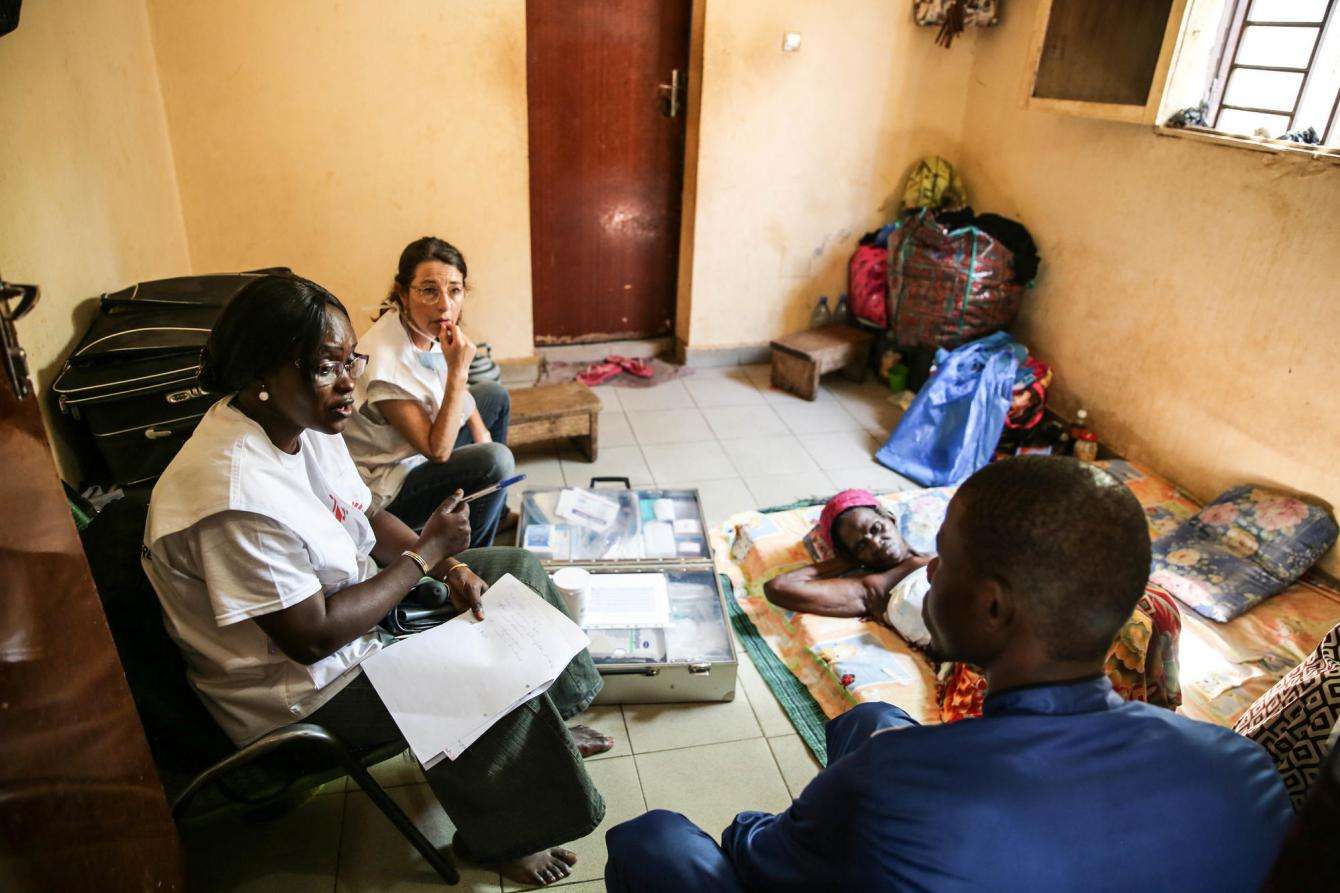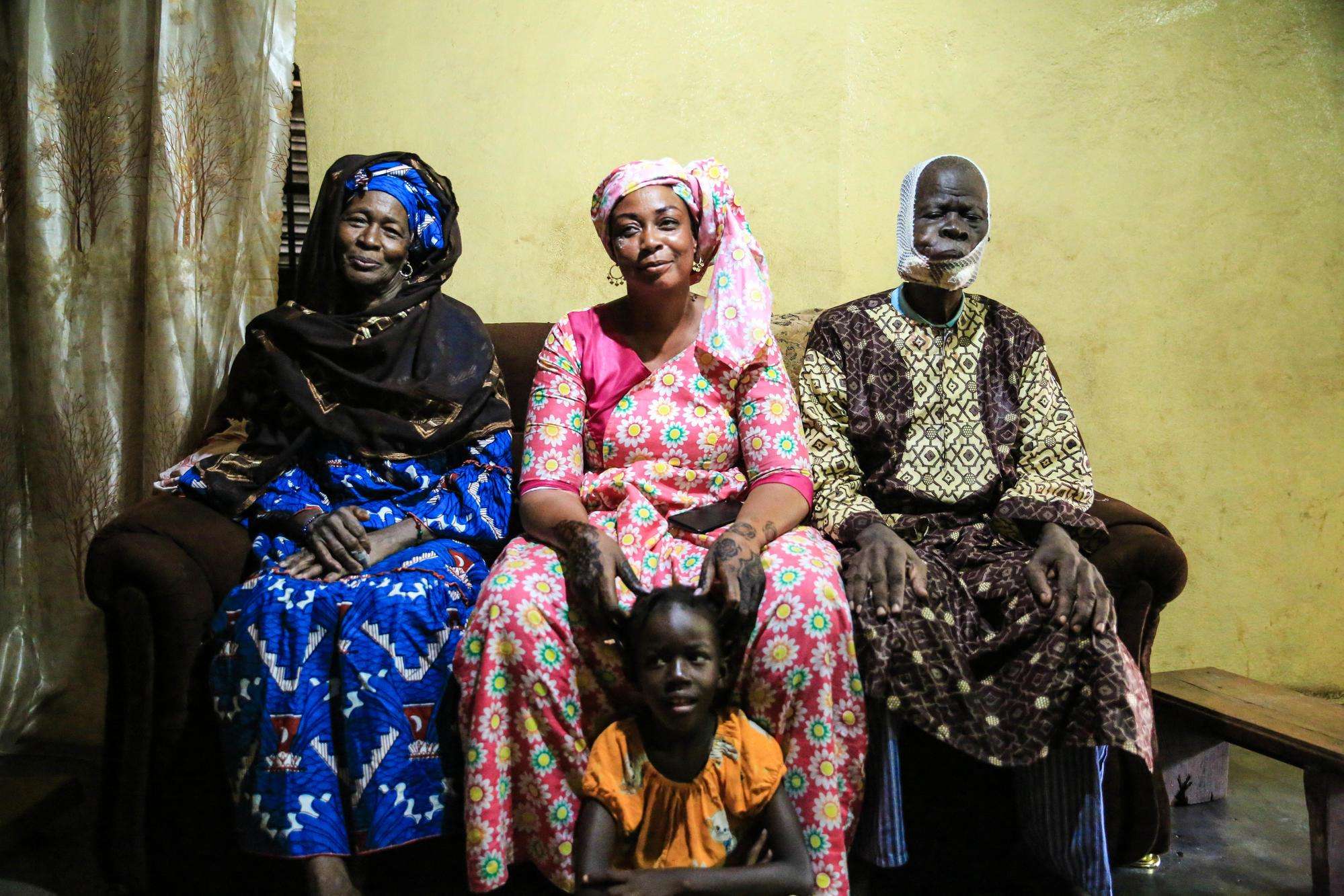When forty-year-old Hawa first fell ill, she traveled more than 600 miles from her home in Timbuktu in northern Mali to the capital city of Bamako in the south for care. For years she sought a diagnosis, traveling to countless medical appointments even as conflict erupted in her home city in 2012. At the time, access to health care was precarious due to a lack of resources and infrastructure, and was further complicated as people—including many health workers—fled to seek refuge in other cities and neighboring countries.
Years passed before she was finally diagnosed with cancer. “I spent so much time hanging around on benches in clinics and hospitals being told the tests were negative and there was nothing wrong, that by the time I was finally told it was a tumor, I was totally drained,” said Hawa. “Since that day, my life has been nothing but suffering and paying out money.” She has spent the last ten years undergoing medical tests, biopsies, and surgical procedures.
Hawa now receives palliative care and support from Doctors Without Borders/Médecins Sans Frontières (MSF) in Bamako as part of a new project run in partnership with Mali’s Ministry of Health. In November 2018, MSF began offering free palliative care and support services in patients’ homes and in Point G Teaching Hospital in Mali’s capital city. We also train health care staff and provide support to the hospital’s hematology-oncology department, where the majority of patients are in the advanced stages of the disease.

“Cursed”
In Bambara—the most widely-spoken of Mali’s 13 indigenous languages—the word “bô” is used to refer to “cancer.” But “Bô” also translates to “curse”, and often when people are diagnosed with cancer they first turn to traditional healers and marabouts, (Muslim religious leaders and teachers in West and North Africa).
Despite the efforts of Malian authorities to improve cancer care, remission is still rare, and often treatment for cancer patients is out of reach and unaffordable. Some anticancer drugs as well as chemotherapy and radiotherapy treatments are provided free-of-charge by the government. But everything else—such as medical imaging, biopsies, consultations, check-ups between chemotherapy treatments, painkillers, and other drugs—has to be paid for by the patient.
A single scan can cost more than 100,000 West African CFA francs [about $170 USD]. And because some of the drugs used in chemotherapy are often out of stock, patients and families frequently have to buy the drugs themselves from private pharmacies—a financial burden many families are unable to shoulder. Health workers struggle with giving patients prescriptions they know they cannot afford and see many patients abandon their treatment.
On top of these prohibitive costs is a shortage of specialized staff and medical units. For example, Mali Hospital in Bamako has the country’s only radiotherapy department. It is overwhelmed by the number of patients, and people can wait months just for their first radiotherapy session.
Supportive care
These barriers mean that many of the patients who do manage to receive treatment receive it too late in the progression of their cancer. In Mali, there are very few treatment options for patients presenting with stage III cancer (when the tumor has spread to the lymph nodes or tissue around it) or stage IV cancer (when the tumor has spread to other organs). In these advanced stages of cancer, there is little hope for remission, and palliative care—i.e managing a patient’s pain and discomfort and providing them with support—is all that can be offered.
Along with pain management, MSF treats the side-effects of chemotherapy, non-cancer blood disorders (such as anemia or blood clotting), and wounds caused by tumors. These wounds are often large, superinfected (meaning a second infection co-infects an existing infection), and unsightly, and as a result some patients are ostracized by the community or their families. But with proper nursing care, wounds can be cleaned and reduced in size. This simple level of care has had a very positive impact on the everyday lives of many of MSF’s patients.
Seventy-seven-year-old Bambi has breast cancer. Her pain was so severe when our teams began treating her that she could barely speak or move. After a month of treatment her pain began to subside, and she could walk again. The MSF team will continue to check on Bambi every day until her wound begins to heal.
Communicating with patients and their families is an essential part of MSF's work. It requires explaining the disease, building trust with them, and identifying everything that can be done to help make the patient more comfortable—from the mattresses they sleep on to the foods they eat.
Maady is seventy-six years old and has a tumor in his jaw. The tumor is debilitating and an infection was preventing him from eating. His jaw is also disfigured and, because of the sight of his wounds, he was isolated by his family. Since MSF began providing care and support to Maady, he has reconnected with his loved ones and regained the ability to eat.
MSF’s teams in Bamako have provided approximately 1,750 consultations to patients with cancer. Between January and September 2019, 103 patients have received home-based palliative care. MSF plans to expand its work in oncology in Bamako and hopes to increase cancer screening—to ensure that cancers are diagnosed at an earlier stage to improve treatment outcomes—and improve access to medical care.




